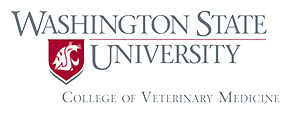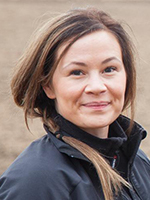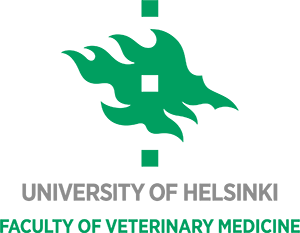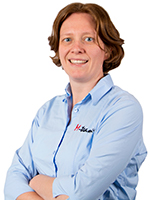About This Course
Welcome to the Bovine Mastitis MOOCs series!
As you know mastitis is a very costly disease on dairies. It is a complex, multi-factorial health problem and, all around the world, a large number of scientists, and their graduate students, are conducting research on this disease.
For that reason, experts from more than 20 countries have decided to work together to produce this series of three MOOC, designed for graduate students, to give them the knowledge they need to initiate their research program. Of course, these MOOCs will also be useful for dairy practitioners, teachers, and for individuals that already have a solid scientific background, and are interested in learning about bovine mastitis.
This second MOOC (of a duration of 18 hours), titled "Mastitis Epidemiology and Diagnostic" will discuss risk factors as well as measuring the prevalence and incidence of clinical and subclinical mastitis. This MOOC will also present the main pathogens causing the disease, their transmission modalities (contagious or environmental), the conventional diagnostic methods and the newest molecular avenues to identify them accurately.
This series will be followed by a third MOOC that will focus on the control of mastitis.
We hope this series will answer all your questions and will be useful for your professional development. Welcome to the "Mastitis epidemiology and diagnostic" MOOC!
Simon Dufour, DMV, Ph.D.
Professor, Université de Montréal
MOOCs series main designer
Project Team
Main Designer and Scientific Expert


Simon Dufour, DMV, Ph.D
Faculty of Veterinary Medicine, Université de Montréal, Canada
Scientific Director, Canadian Bovine Mastitis and Milk Quality Research Network
simon.dufour@umontreal.ca
Simon Dufour is the scientific director of the Canadian Bovine Mastitis and Milk Quality Research Network and epidemiology professor at the Faculty of Veterinary Medicine of the Université de Montréal, Canada. Simon holds a DVM and a Ph.D. from University of Montreal. Before engaging in research he has worked with Canadian dairy producers for 10 years as veterinary practitioner, an experience that helped him developed an excellent understanding of the dairy industry. His consuming interests are the epidemiology of mastitis pathogens, the development of tools for monitoring mastitis, and the development of novel practices for controlling mastitis.
Scientific Expertise


Anneleen De Visscher, DVM, PhD
Ghent University, Faculty of Veterinary Medicine, Belgium
Anneleen.DeVisscher@UGent.be
In 2010, Anneleen De Visscher graduated with great distinction as a veterinarian at the Faculty of Veterinary Medicine (Ghent University, Belgium). She received the price for “Best Master Thesis Ruminants”.
She immediately started a PhD research at the M-teamUGent of the Department of Reproduction, Obstetrics, and Herd Health (Faculty of Veterinary Medicine, Ghent University, Belgium). Since 2012, her research was financed by a PhD grant by the Agency for Innovation by Science and Technology in Flanders (IWT Vlaanderen). As she followed several specialist courses, Anneleen also received the certificate of the Doctoral Schools of Live Science and Medicine. In 2016, she successfully defended her PhD entitled “Ecology and Epidemiology of Bovine-Related Coagulase-Negative Staphylococcus Species”. Nowadays, Anneleen works as a postdoctoral research fellow at an Anihwa ERA-Net project and at the M-teamUGent.
Meanwhile, Anneleen was involved as a veterinarian in the M-teamUGent herd consultancy. She gave also several lectures on mastitis, milk quality and microbiology for dairy farmers, veterinarians and students.


Lawrence K. Fox, DVM, PhD
Washington State University, Department of Veterinary Clinical Medicine and Surgery
Department of Animal Sciences, USA
fox@wsu.edu
Dr. Larry Fox obtained is B.S. degree in 1977 at Cornell University (NY), his M.Sc at Virginia Tech in 1980, and finally his Ph.D at University of Wisconsin in 1983. He is a professor at Washington State University, in Department of Animal Sciences and Department of Veterinary Clinical Medicine and Surgery since 1985. Dr. Fox research efforts examine new methods of control of contagious mastitis, principally directed at control of Staphylococcus aureus and Mycoplasma sp. mastitis by utilization of biotechnologies to “Fingerprint”, and trace the two pathogens. He also studies the effectiveness of standard milking procedures to reduce mastitis and improve milk quality. Dr Fox was president of National Mastitis Council in 2008.


Heidi Hiitiö, DVM, PhD
University of Helsinki, Department of Production Animal Medicine, Finland
heidi.hiitio@helsinki.fi
Heidi Hiitiö graduated in veterinary medicine from the University of Helsinki in 2011. She subsequently became a specialist in production animal medicine in 2017.
She works as a veterinarian for the private herd management firm Lehmälääkärit.com, of which she is a co-founder and partner in Finland. Since 2012, she has been a PhD candidate at the University of Helsinki. Her project focuses on the diagnosis of mastitis by the PCR method. Dr. Hiitiö’s other research interests are in mammary gland health based on empirical methods and health planning of dairy herds.


John Middleton, BS, DVM, PhD, Dipl. ACVIM
University of Missouri, Department of Veterinary Medicine and Surgery, USA
middletonjr@missouri.edu
Dr. John Middleton obtained his BS degree (1990), DVM (1993), and PhD (2001) at Washington State University. He has been a Diplomate of ACVIM-LAIM since 1999. Dr. Middleton is a tenured professor of Food Animal Medicine and Surgery in the College of Veterinary Medicine at the University of Missouri and serves as an Assistant Director of the Agricultural Experiment Station. He has clinical, teaching, administrative, and service responsibilities in the Department of Veterinary Medicine and the Dean’s Office. John’s research program is centered on mastitis and milk quality of dairy cattle and dairy goats. He was also president of National Mastitis Council in 2014.


Sofie Piepers, DVM, PhD
Ghent University, Faculty of Veterinary Medicine, Belgium
Sofie.Piepers@UGent.be
In 2005, Sofie Piepers graduated as a veterinarian at the Faculty of Veterinary Medicine of Ghent University in Belgium. She immediately started working at the Department of Reproduction, Obstetrics and Herd Health as PhD student. In 2010, Sofie Piepers successfully defended her PhD on intramammary infections. In the meantime, she was involved in services of the University cattle (ambulatory clinics) practice for 5 years and founded together with Dr. Sarne De Vliegher the M-team. Sofie Piepers is currently active as postdoctoral fellow worker of the M-team UGent. Sofie Piepers is also actively involved in the M-team UGent herd consultancy and gave several national and international lectures on mastitis and milk quality for dairy farmers as well as veterinarians and other advisors active in the dairy industry. In 2014, she organized together with Dr. Sarne De Vliegher the first ever National Mastitis Council regional meeting outside the USA. Sofie is also co-editor-in-chief of the M²-magazine, on udder health. Since 2015, Sofie Piepers is also cofounder and managing director of MEX™, a spin-off focussing on tools and concepts to make mastitis management easy.


Jean-Philippe Roy, DMV, MSc, Dipl. ECBHM
Université de Montréal, Faculté de médecine vétérinaire, Canada
Researcher Member, Canadian Bovine Mastitis and Milk Quality Research Network
jean-philippe.roy@umontreal.ca
Dr. Jean-Philippe Roy obtained his DMV at Université de Montréal in 1999. After working in private practice (1999-2001), he became a clinician at the Bovine Ambulatory Clinic of the Veterinary Hospital Center of Université de Montréal. In 2003, Jean-Philippe became a lecturer, and in 2005, he was appointed professor in the Department of Clinical Sciences of the Faculty. The same year, he completed a M.Sc. He is currently the Medical Chief of the Bovine Ambulatory Clinic. He is a member of several research groups in Quebec and Canada, including the Canadian Bovine Mastitis and Milk Quality Research Network. Dr. Roy has developed a large expertise in on-farm milk cultures used for mastitis diagnosis by his involvement in numerous applied research projects on the subject. Jean-Philippe is also a recognized trainer and speaker to his veterinary peers.
Technopedagogical Expertise
Caroline De Coninck
Educational Advisor | University Pedagogical Center, Université de Montréal
Pedagogical and Administrative support
Suzie Savard
Manager | Center of Expertise in Continuing Veterinary Skills Development, Université de Montréal
Robert Gérin-Lajoie
Special Projects Advisor | University Pedagogical Center, Université de Montréal
Project Coordination
Hélène Poirier
Agronomist | Knowledge Transfer Agent | Canadian Bovine Mastitis and Milk Quality Research Network
Mediatization
Mélodie Averna
Media Technician | University Pedagogical Center, Université de Montréal
Patrick Labonté
Media Technician | Center of Expertise in Continuing Veterinary Skills Development, Université de Montréal
Cédric Joyal
Media Advisor | University Pedagogical Center, Université de Montréal
Jean-Christophe Schaffner
Media Technician | University Pedagogical Center, Université de Montréal
Transcription, translation and writing
Coralie Goetz, Ph.D. student | Université de Montréal
Ibtissem Doghri, Postdoctoral Fellow | Université de Montréal
Marketa Kopal, Knowledge Transfer Agent | Canadian Bovine Mastitis and Milk Quality Research Network















